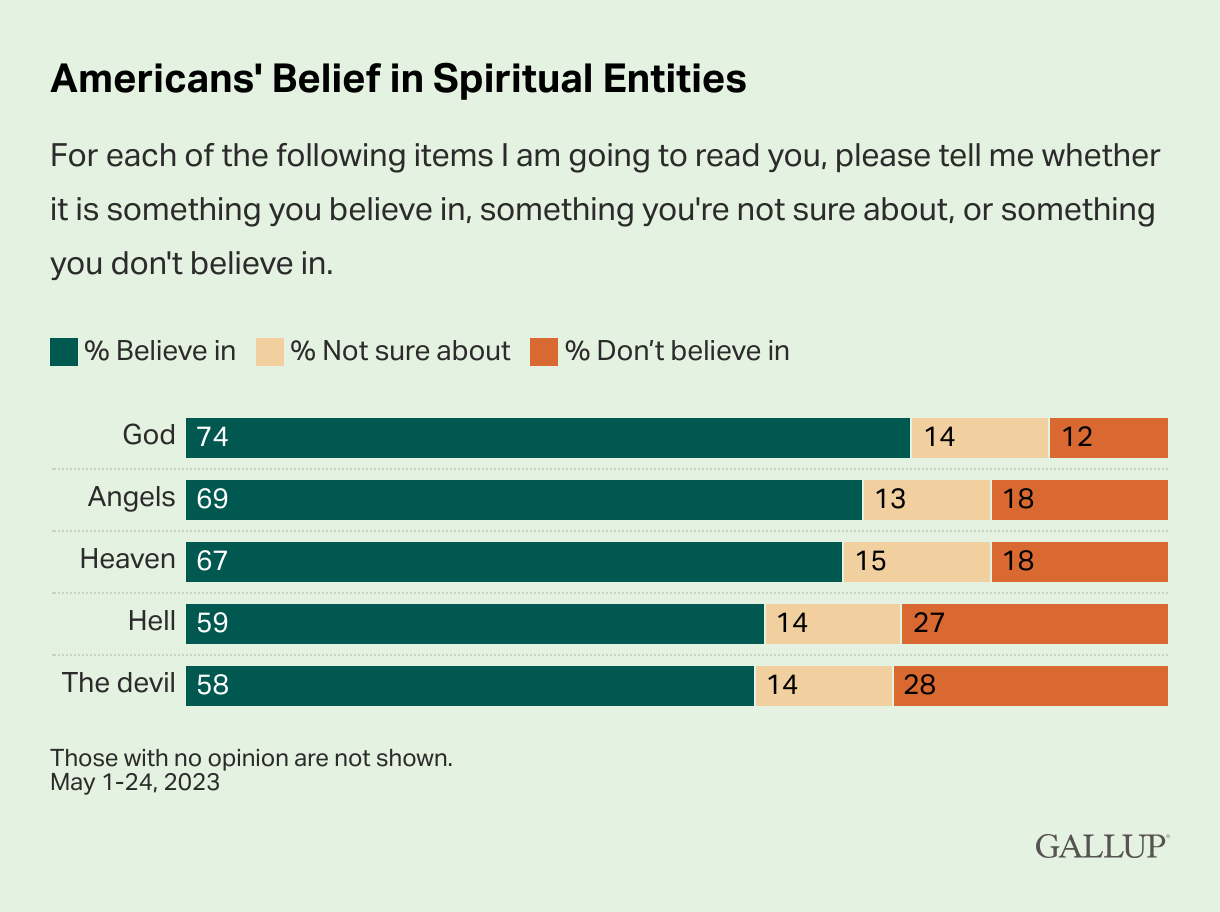That’s not exactly how early Christians used the idea of hell, said Henning, an associate professor of Christian origins at the University of Dayton. Those early Christians — inspired by the horror of Roman jails — created images of hell and punishment to motivate people to do the right thing in this life.
Fear of hell, she said, was used to motivate people to care for the poor or to live out the virtues of the Sermon on the Mount. That’s very different from how the fear of hell is used today, she said — where failing to care for the poor is not one of the prime sins that Americans care about.
That’s very different from the Bible’s teachings, she said.
Henning said Gallup’s findings about income and belief in hell and the devil have some parallels in early Christianity. Those early Christians who wrote the New Testament were marginalized and had very little power. The idea of hell and punishing people for their evildoing — or rewarding them for good deeds — was very empowering, she said.
When people have been treated unjustly, she said, they want to believe that there are forces at play to set things right in the end. “Otherwise, it all feels hopeless,” she said.

“Americans’ Belief in Spiritual Entities” Graphic courtesy of Gallup
Stephanie Buckhanon Crowder, professor of New Testament and culture at Chicago Theological Seminary, wonders if some Americans are thinking of the real world — rather than the afterlife — when asked if hell exists. “Before we even get to the spiritual realm,” she said, “I think when people are asked, is there a Hades that people are experiencing here on earth.”
Joseph Baker, a sociologist of religion at East Tennessee State University and co-author of “Fear Itself,” said that those who believe in hell tend to support more authoritarian and punitive ideas and experience more depression. But he added some of the positive aspects of spirituality can balance out those negative associations.
The Enlightenment — the post-Renaissance movement in which reason replaced belief in Western culture — began the devil’s decline, said Joseph Laycock, an associate religion professor at Texas State University. Enlightenment ideas helped turn the devil into more of a fictional character in the arts and literature than a spiritual being with real power in the popular imagination. The Enlightenment caused some theologians to “kick the devil out of Christianity,” he said.
The dynamic played out more recently in the success of the 1973 film “The Exorcist,” according to Laycock. The graphic depiction of demonic possession led some clergy to downplay the devil as a spiritual power and to view hell and the devil more as metaphors.
“I actually think the success of ‘The Exorcist’ in 1973 was connected to the attitude that Satan is just a myth,” he said. (More bad news for Satan: A trailer for the sequel to “The Exorcist” just debuted this week.)
The decline in belief in the devil could have a downside, said Laycock. He said his wife, Natasha Mikles, an assistant professor at Texas State, teaches a class about hell and her students frequently come in thinking that hell is just a “scary story meant to control people.”
“That’s not wrong,” he said. “But it also gives people an idea of justice.”

